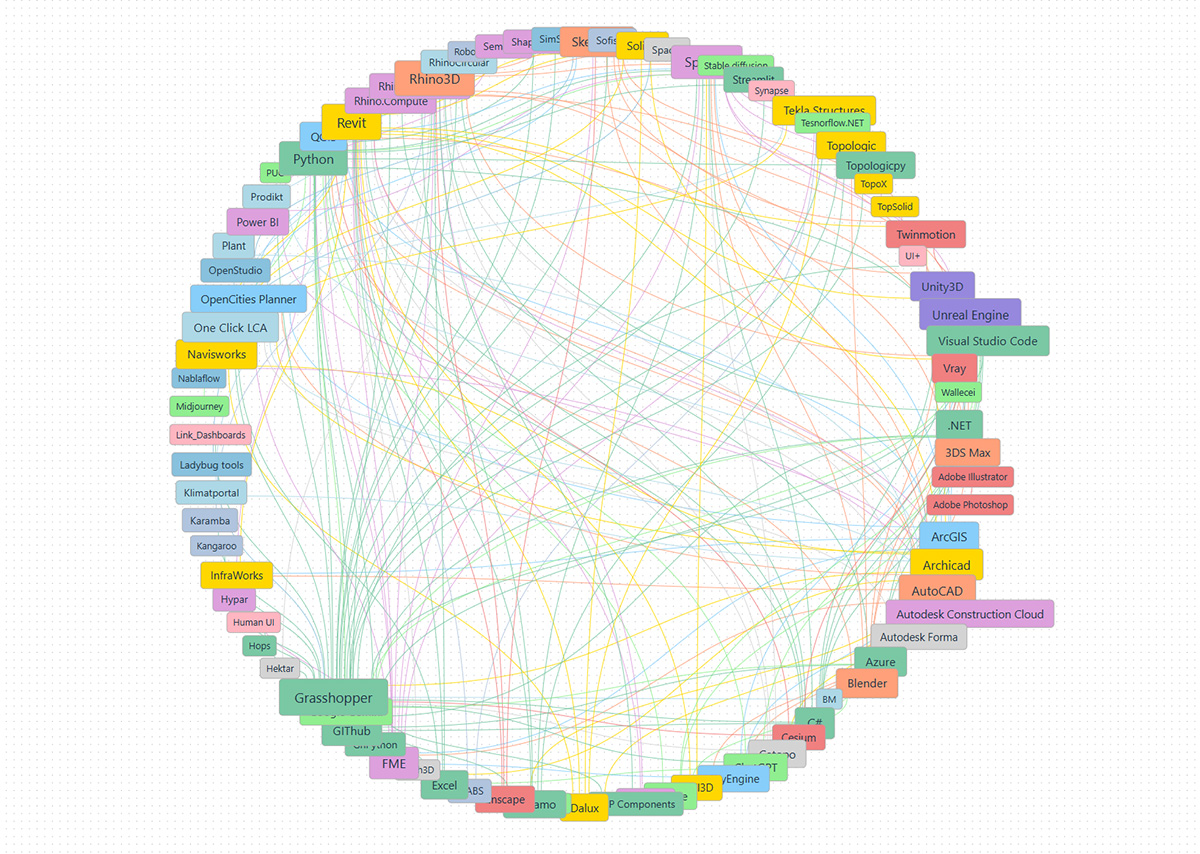Design Technology: Digital Ability for Sustainable Architectural Practice
This project aims to strengthen architects' ability to use and develop design technologies for a more efficient, sustainable, and business-oriented architectural practice.

Project Name: Design Technology: Digital Ability for Architectural Practice
Project Leader: Alexander Gösta, RISE
Head of Research: Jonas Runberger, KTH School of Architecture
See below for current call for PhD candidate linked to the project.
Participating Organisations:
KTH School of Architecture
RISE
BAU
Blick Arkitektur
Brunnberg Forshed
ElinderSten
Equator
FOJAB
GAIA
Gatun Arkitekter
Kaminsky
Parametric Solutions
Pragmatic Systems Intelligence
Ramboll
Reflex Arkitekter
Rundquist
Scharc
Spacio
Tyréns
Urban Design
Project Period: 2025-06-01 – 2028-05-31
Funding: Formas / Smart Built Environment
External Link: Design Technology: Digital Capability for Sustainable Architectural Practice - Smart Built
This project aims to strengthen architects' ability to use and develop design technologies for a more efficient, sustainable, and business-oriented architectural practice.
Climate change, resource scarcity, and increased demands for sustainability and efficiency drive transformation in the construction industry, where new methods and technologies are becoming crucial. Small and medium-sized architectural firms contribute with diversity and innovation capacity but often lack the resources to keep pace with rapid digitalisation. A lack of effective methods for collaboration and exchange on digital development limits the potential of new technologies, leading to inefficiencies and missed opportunities. At the same time, evolving business models and industry structures do not always support innovation or long-term value creation.
Design technologies refer to tools and platforms deeply integrated into the design and planning process, enabling architects to develop new working methods in their daily practice, including BIM, computational design, and a wide range of AI-supported applications.
We seek to enhance architectural firms' digital development capability by streamlining workflows, exploring new business models, and improving conditions for digital innovation. The collaborative nature of the project will also foster synergies among partners during the project period to establish a long-term and growing network, which will strengthen the competitiveness of architectural firms and their ability to contribute to a more sustainable built environment with a reduced climate impact in the construction sector.
Throughout the project, we will conduct methodological development, interdisciplinary collaboration, and pilot studies with direct applications in the participating firms' ongoing work in, among other things, the reuse of materials, material optimisation, and generative design processes. Outcomes will include reusable digital workflows, a strategic framework for digital development, and examples of business models that promote innovation and sustainability in strengthened architectural practice. Knowledge exchange and dissemination will be done through seminars, scientific publications, and educational materials to enable the broad implementation of the project's goals.
The project is led by RISE in collaboration with the KTH School of Architecture. It involves 13 architectural firms, two engineering consultants, and three digital development companies.
